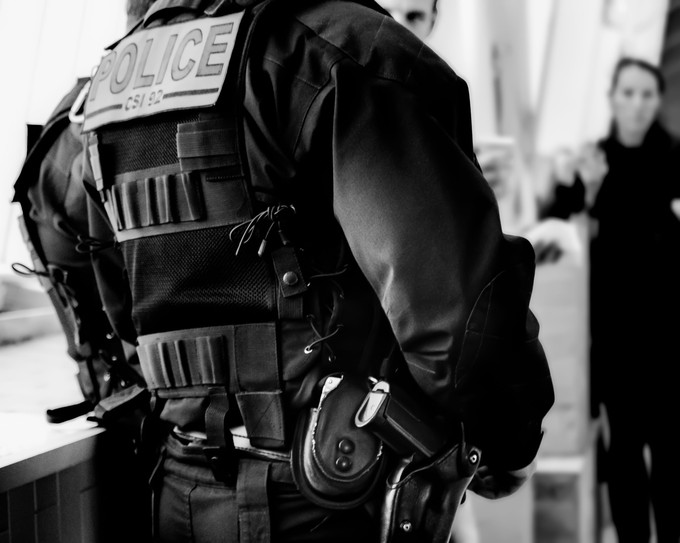New Mexico’s National Guard Initiative Highlights the Nation’s Skewed Priorities
By
Aspen Coriz-Romero
Posted:
|
Military & Security

Photo by Unsplash from Freerange Stock
On April 8, 2025, New Mexico Governor Michelle Lujan Grisham authorized the deployment of 60 to 70 members of the National Guard to the city of Albuquerque. The mission, referred to as “Operation Zia Shield,” is set to begin as soon as Memorial Day weekend.
The governor’s office stated the order was in response to an emergency request by the Albuquerque Police Department (APD). According to Chief of APD Harold Medina, support from Guardsmen with non-enforcement duties would help increase officer availability in order to fight the fentanyl epidemic and “juvenile crime.” Training of National Guard personnel by the New Mexico Department of Homeland Security, Department of Public Safety, State Police and APD is currently underway.
National Guard members will take on tasks outlined in a memorandum by Chief Medina, to include prison transports, securing scenes and traffic control, drone operations, security in courts and the Albuquerque International Sunport, and the distribution of food and water to individuals experiencing homelessness. The authorization has raised public concern and advocates fear collaboration between military and civilian law enforcement will lead to the violation of civil rights and further criminalize homelessness rather than actually address the root causes of public safety issues.
There's a compelling basis for concern: New Mexico has one of the highest rates of police killings per capita in the country. APD in particular has an extensive history of officers using lethal force against civilians. The department faced a decade-long investigation and lawsuit by the US Department of Justice for an overwhelming pattern of unconstitutional use of deadly force.
However, history shows “tough-on-crime” policy approaches aren’t effective - they target marginalized individuals, decimate families, often lead to reoffense and further exacerbate existing problems.
New Mexico is an example of this failed approach to public safety. The state continues to have one of the nation’s highest rates of both juvenile incarceration and poverty - and this is no coincidence.
New Mexico’s poverty rate in 2024 was 18.3%, while the national average was 12.5%. And from 2017 to 2024 the number of people without homes in New Mexico increased by 87% – more than double the national rise of 40% over the same period. In Albuquerque, the state’s largest city, the rate grew by 108%.
Albuquerque is already spending a disproportionate amount of public money on law enforcement instead of improving conditions that actually prevent crime and poverty. For fiscal year 2025 the city of Albuquerque appropriated $62,243,000 for ‘health, housing, and homelessness’ while the police department received $282,697,000 – more than four times more funding.
In a state already so heavily impacted by police violence, safety cannot and will not be found through increased police presence or military collaboration. There are no quick or easy fixes but investing more in social services and community-based solutions is evidently the best way to alleviate symptoms of poverty.
More effective initiatives already exist. One example is the Albuquerque Community Safety program that offers first responder assistance to de-escalate mental health crises without unnecessary police involvement. Other pivotal public health interventions include expanding access to treatment and harm reduction programs like Naloxone/Narcan training, needle exchange sites, and the distribution of fentanyl test strips. These policy solutions have resulted in declining overdose death rates in New Mexico and across the US.
The decision to establish this pilot partnership between APD and the National Guard is not just a step in the wrong direction for New Mexico – it highlights skewed national priorities. An overly militarized federal budget means our country’s military has a surplus of resources to spare – meanwhile social safety net programs aren’t only insufficiently funded, but under threat of deep cuts despite growing economic inequality.
At both the local and national level, policymakers are doubling-down on militarizing, rather than helping struggling communities. Donald Trump’s recent presidential budget request called for the elimination of federal funding to life-saving harm reduction programs and the National Center for Restorative Justice (which helps keep K-12 youth out of prisons) – and at the same time proposed an astonishing $1 trillion Pentagon budget.
Our taxpayer dollars are better spent meeting people’s basic needs which fosters real security for everyone – not splurging on systems of policing, mass incarceration, and militarism that hoard fiscal resources and harm our communities.
Aspen Coriz-Romero is the New Mexico Fellow with the Institute for Policy Studies.